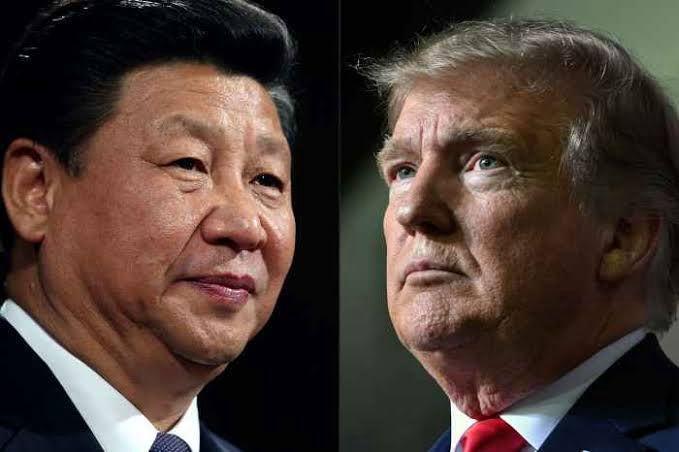
Markets Plunge as China Hits Back at US with 84% Tariff
The global economy was sent into a tailspin as the US-China trade war intensified, with markets experiencing a significant downturn. The S&P 500 index plummeted below 5,000, marking a nearly 19% drop from its recent high. Investors were left reeling as the US and China imposed hefty tariffs on each other’s goods, sparking fears of a prolonged trade dispute.
The latest developments in the trade war began when the US announced a 104% tariff on Chinese goods, a move that was met with swift retaliation from China. Beijing imposed an 84% tariff on US goods, including agricultural products, aircraft, and automobiles. The tariffs are expected to take effect in the coming weeks, with the potential to severely impact global trade and economic growth.
The sharp decline in markets was evident across the globe, with Asian markets experiencing some of the steepest losses. Japan’s Nikkei 225 index fell by 5.5%, while India’s Sensex dropped by 3.5%. European markets also saw significant declines, with the FTSE 100 and the DAX falling by 3.2% and 3.5%, respectively.
The impact of the tariffs on the global economy is likely to be significant. The US is China’s largest trading partner, and the tariffs imposed by Beijing are expected to hit American farmers and manufacturers particularly hard. The US-China trade war has already had a significant impact on the global supply chain, with many companies reliant on Chinese imports and exports.
The technology sector was particularly hard hit, with many tech companies reliant on Chinese components and manufacturing. The losses were widespread, with companies such as Apple, Intel, and Qualcomm all experiencing significant declines. The decline in tech stocks was largely driven by concerns over the potential impact of the tariffs on the global supply chain.
The energy sector also saw significant declines, with oil prices falling by 2.5% due to concerns over the potential impact of the tariffs on global demand. The decline in oil prices was largely driven by concerns over the potential impact of the tariffs on the global economy.
The sharp decline in markets has raised concerns over the potential impact of the tariffs on global economic growth. The US-China trade war has already had a significant impact on the global economy, with many economists warning of a potential recession.
The US-China trade war has been a major source of uncertainty for investors, with many concerned over the potential impact of the tariffs on global trade and economic growth. The decline in markets has raised concerns over the potential impact of the tariffs on global economic growth, with many economists warning of a potential recession.
The US-China trade war has been a major source of uncertainty for investors, with many concerned over the potential impact of the tariffs on global trade and economic growth. The decline in markets has raised concerns over the potential impact of the tariffs on global economic growth, with many economists warning of a potential recession.
The US-China trade war has been a major source of uncertainty for investors, with many concerned over the potential impact of the tariffs on global trade and economic growth. The decline in markets has raised concerns over the potential impact of the tariffs on global economic growth, with many economists warning of a potential recession.
In conclusion, the US-China trade war has sent global markets into a tailspin, with the S&P 500 index falling below 5,000. The decline in markets has raised concerns over the potential impact of the tariffs on global economic growth, with many economists warning of a potential recession. The US-China trade war has been a major source of uncertainty for investors, with many concerned over the potential impact of the tariffs on global trade and economic growth.
Sources:






